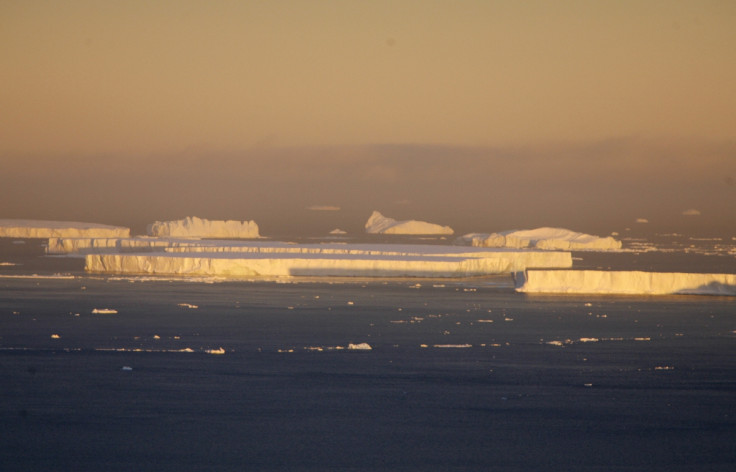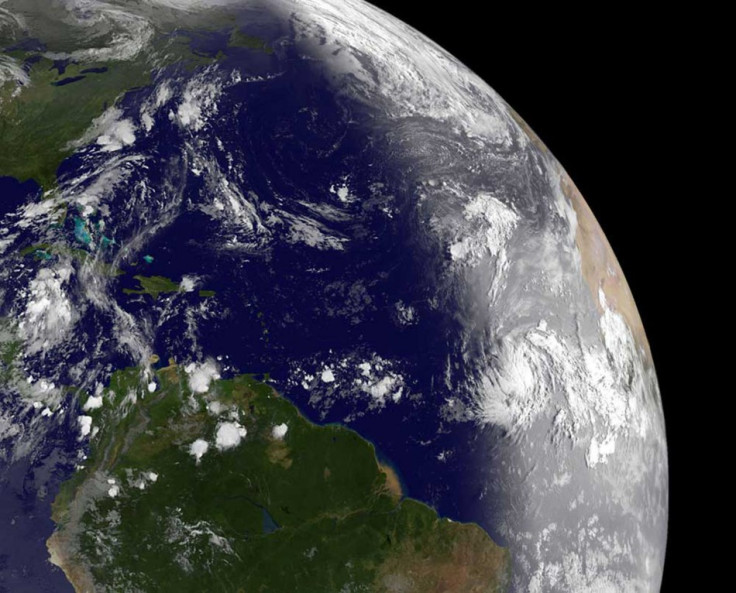Controversial Plan to Slow Global Warming 'Terrifies' Scientist Who Created It
Matthew Watson said we must weigh up what would happen if we do nothing to limit global warming.

A controversial plan to cool down the planet has been dubbed "terrifying" by the one of the scientists who put it forward.
Matthew Watson, from the University of Bristol, is part of a £1.8m government-funded project to work out how sunlight could be reflected back into space to slow global warming (known as geoengineering)
Watson is not the first scientist to suggest this plan. Experts at the Harvard School of Engineering and Applied Sciences have also proposed an experiment that would pump small amounts of sulphuric acid into the atmosphere to block sunlight.
The theory behind the proposal is to do with volcanic eruptions. When there is an explosive eruption, sulphur dioxide gas produced. Droplets of sulphuric acid then form when the gas combines with oxygen in the upper atmosphere, reflecting sunlight away from Earth and lowering temperatures.
Scientists believe they could replicate this process to induce global cooling, helping to counteract the effects of global warming. Other ideas include removing greenhouse gasses from the air, or spraying low lying clouds with sea salt to brighten them. These proposals have been dubbed solar radiation management.
However, there are substantial risks involved – side effects could lead to the destruction of atmospheric ozone, which would lead to an increase in cancer from solar radiation.
Watson said that at present, scientists do not know if deploying such technologies would do more good than harm. Once set into motion, they would also be difficult to control, he said.

Researchers presented their results at the Royal Society in London, with Watson keen to point out he is not keen on interfering with the climate and said the idea of doing so was "terrifying".
"This stuff terrifies me. But we have to compare it with what will happen if we do nothing. If we ever deploy solar radiation management, it will be the closest indication yet that we've failed as planetary stewards."
Models currently suggest global temperatures will rise by 4C by the end of the century if nothing is done to stop global warming.
Watson said that while there are great risks involved, we may come to a point where there is no other option: "There is a point at which not deploying some technologies would be unethical.
"It's a watershed for our relationship with the Earth and with nature. It fundamentally changes the way seven billion people are going to interact with the world, and I'm not sure the system is going to be controllable in the way we want."
As a result of solar radiation management suggestions, the Climate Geoengineering Governance (CGG) has been established to look at the regulatory challenges and governance of these proposals.
Professor Steve Rayner, principal investigator for the CGG project, said: "Take everything you hear both for and against geoengineering with a large grain of salt. Mostly it is too soon to know what any of these technology ideas would look like in practice or what would be their true cost and benefit.
"But it's almost certain that geoengineering will be neither a magic bullet nor Pandora's Box."
© Copyright IBTimes 2025. All rights reserved.






















